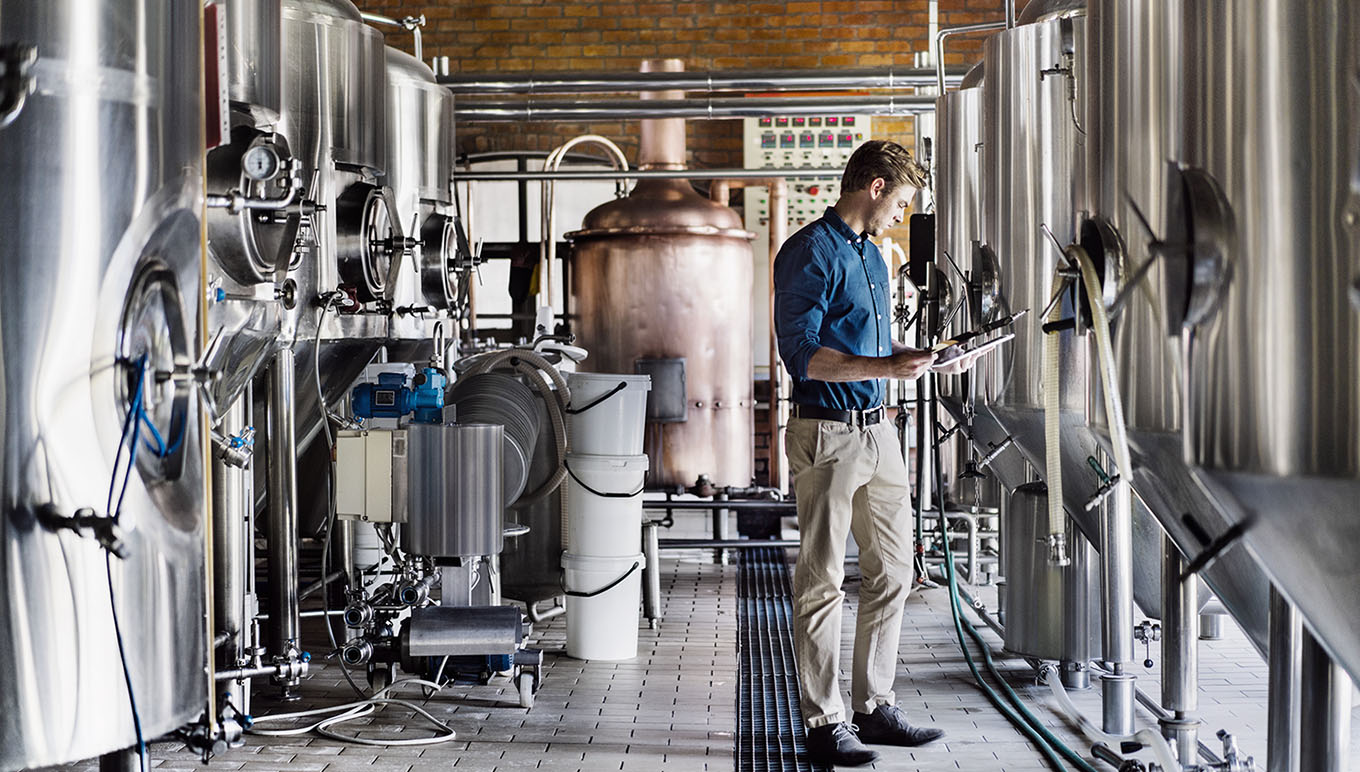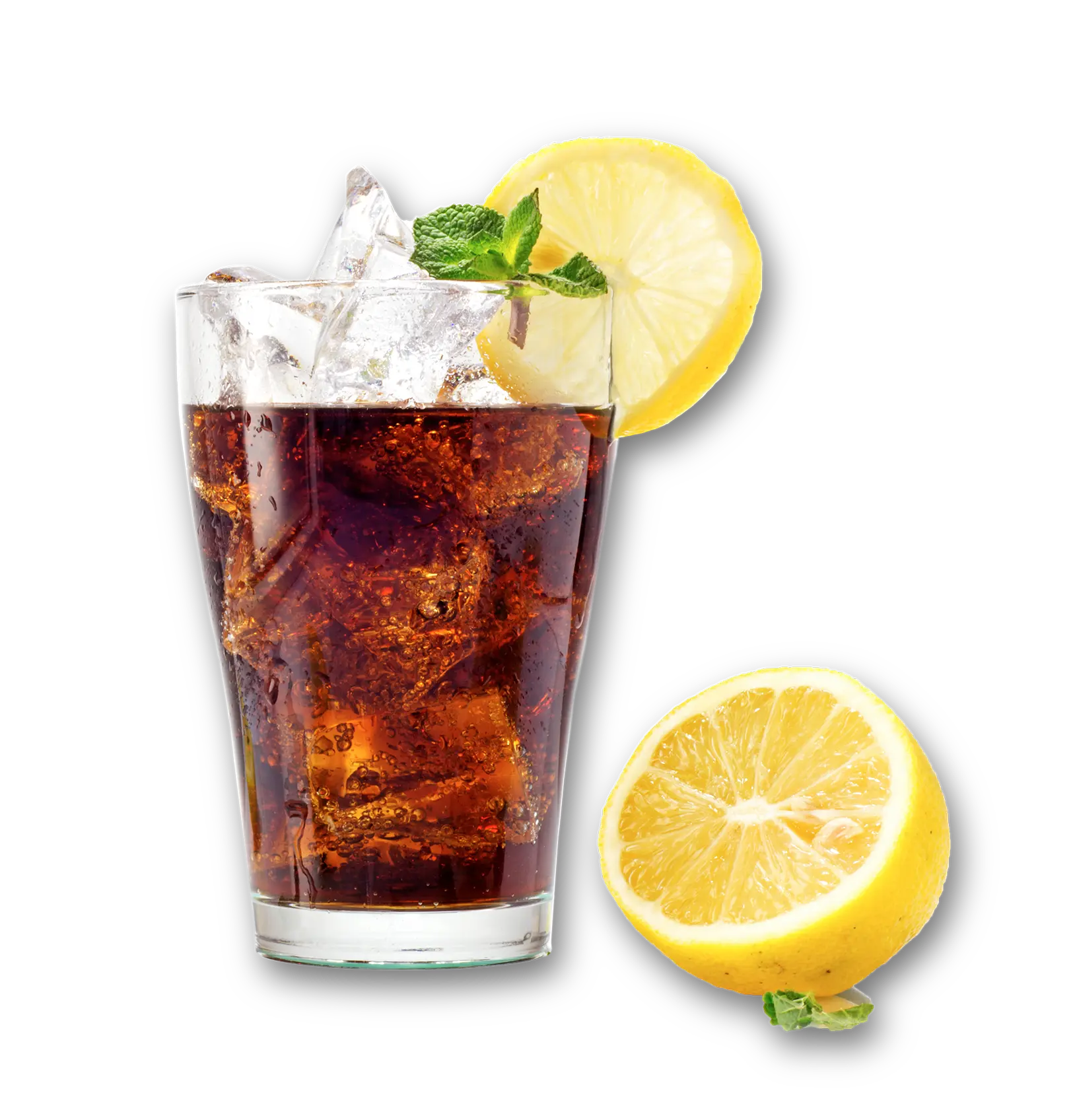In diesem Beitrag vorgestellt
5 Trends in der Getränkeindustrie: Neue Herausforderungen und Chancen entstehen
5 Trends in der Getränkeindustrie: Neue Herausforderungen und Chancen entstehen

"Erfrischend."
Es ist ein Wort, das man oft mit einem Lächeln im Gesicht ausspricht, wenn man nach einem Schluck ein Glas oder eine Flasche vom Mund nimmt. Es ruft Gefühle der Erleichterung, Entspannung und Erneuerung hervor – und genau das sollte ein Getränk sein.
Es ist auch eine gute Beschreibung für etwas Neues oder Augenöffnendes, wie etwa ein neues Produkt in den Regalen der Geschäfte oder eine sich abzeichnende Entwicklung der Verbraucherpräferenzen. Das passt, denn der Fokus dieses Blogbeitrags liegt auf den fünf größten Trends der Getränkeindustrie. Doch zunächst wollen wir einige der neuesten Statistiken durchgehen, um einen Eindruck von der Entwicklung der Branche als Ganzes zu bekommen.
Die Gesamtindikatoren sind positiv: Statista prognostiziert, dass der globale Getränkemarkt bis Ende 2024 einen Umfang von 141,9 Milliarden US-Dollar erreichen und bis 2029 weiterhin mit einer robusten durchschnittlichen jährlichen Wachstumsrate (CAGR) von 9,73 % wachsen wird.
Darüber hinaus ergab unsere jüngste, in Zusammenarbeit mit B2B International durchgeführte Untersuchung, dass 71 % der Erfrischungsgetränkehersteller und 80 % der Alkoholhersteller auf dem nordamerikanischen und europäischen Markt in diesem Jahr mit höheren Gewinnen rechnen als im Jahr 2023.
Da Sie selbst ein Profi in der Getränkeindustrie sind, werden diese Zahlen Sie natürlich in Schwung bringen und Sie werden gespannt darauf sein, Wege zu finden, wie Ihr Unternehmen einen größeren Anteil an einem aufstrebenden Markt erobern kann. Lassen Sie uns also ohne weitere Umschweife die fünf Trends in der Getränkebranche untersuchen, die Sie im Auge behalten sollten, damit Ihre Marke relevant bleibt und die Nachfrage nach Ihren Produkten erhalten bleibt.
1. Durst nach dem Funktionellen und Gesunden
Funktionelle Getränke – also solche, die über die Flüssigkeitszufuhr und den erwarteten Nährstoffgehalt hinaus einen gesundheitlichen Nutzen bieten – sind nichts Neues, erfreuen sich jedoch immer größerer Beliebtheit. Zu dieser Kategorie gehören Proteinshakes und Smoothies sowie mit Probiotika angereicherte Kombuchas, mit Pilzen angereicherte Matchas, nootropische Sprudelwasser und vieles mehr.
Auch andere Getränke, die der Gesundheit und dem Wohlbefinden dienen, sind auf dem Vormarsch. Wir sehen dies an der Verbreitung von zuckerfreien Limonaden, Sportgetränken, die den Elektrolytverlust durch Schwitzen wieder auffüllen, und aromatisierten Wässern, die ohne unnötige Zusätze gut schmecken. Und pflanzliche Alternativen zu Milchprodukten sind nicht nur laktosefrei, sie haben auch weniger Kalorien.
2. Optionen mit niedrigem und keinem Alkoholgehalt
Während es im Bereich der alkoholischen Getränke keine größeren Anzeichen eines Rückgangs gibt, gewinnt die „nüchterne Neugier“-Bewegung insbesondere unter den Konsumenten der Generation Z an Dynamik. Sie rücken alkoholfreie Biere, Mineralwasser und Spirituosen ins Rampenlicht, da diese den Geschmack eines alkoholischen Getränks ohne die Nachteile des Alkoholkonsums bieten.
Auch trinkfertige „Mocktails“ nehmen einen großen Anteil am alkoholfreien Markt ein. Viele davon werden aus erstklassigen Zutaten hergestellt und haben sowohl exotische als auch verlockende Geschmacksrichtungen. Allerdings gibt es auch Kritik an den Preisen, zu denen sie verkauft werden – angesichts der Lebenshaltungskostenkrise ist es schwer zu rechtfertigen, denselben Preis wie für einen normalen Cocktail zu zahlen.
4. Neue Vorlieben beim Koffeinkonsum
Die morgendliche Tasse Kaffee ist nicht mehr das, was sie einmal war, zumindest nicht für die Kaffeetrinker der Generation Z – sie möchten ihren Latte oder Nitro-Brew eisgekühlt und vorzugsweise kalt gebrüht. Sie holen sich ihren Kaffee auch eher in einem Café, als ihn sich zu Hause zuzubereiten. Außerdem betrachten sie Kaffee nicht unbedingt als etwas, das sie jeden Tag brauchen, und verzichten oft lieber darauf.
Energydrinks sind eine Alternative für alle, die einen Energieschub brauchen, und die Marken, die weiterhin erfolgreich sind, entwickeln sich weiter und bringen Elektrolyt- und CBD-Sorten auf den Markt. Allerdings schreckt der Preis die Käufer manchmal ab und Produkte mit sehr hohem Koffeingehalt stehen aus gesundheitlichen Gründen auf der Kippe.
5. Nachhaltigkeit gewinnt an Bedeutung
Umwelt-, Sozial- und Governance-Aspekte (ESG) haben für Unternehmen mittlerweile höchste Priorität, insbesondere für diejenigen, die ihr Markenimage schützen und negative Presse vermeiden möchten. Die Verbraucher haben gezeigt, dass sie bereit sind, mehr zu zahlen, wenn die Unternehmen dafür ihren CO2-Fußabdruck verringern können. Dies trifft sicherlich auf die Getränkeindustrie zu.
Aus diesem Grund entscheiden sich viele Getränkehersteller für die lokale Beschaffung ihrer Zutaten, um die Emissionen zu minimieren und ihre Produkte von der Konkurrenz abzuheben. Auch die Reduzierung von Verpackungen und die Verwendung wiederverwertbarer Materialien sind von entscheidender Bedeutung. Pfandrücknahmesysteme, die dafür sorgen sollen, dass Einweg-Plastikflaschen nicht auf Mülldeponien landen, gewinnen an Bedeutung; in der EU wurden sie bereits umgesetzt.
Der nächste Schritt: Stärken Sie die digitale Grundlage Ihres Getränkegeschäfts
Jetzt ist es an der Zeit, Ihr Unternehmen und Ihre Produkte auf diese Trends der Getränkeindustrie auszurichten. Jeder dieser Aspekte wird mit der Zeit noch ausgeprägter werden. Das bedeutet, dass die Anpassungs- und Anpassungsfähigkeit Ihres Unternehmens in der nahen Zukunft nicht nur für den kurzfristigen Umsatz, sondern auch für die langfristige Rentabilität und Popularität von entscheidender Bedeutung sein wird.
Um das Maß an betrieblicher Flexibilität zu erreichen, das erforderlich ist, um neue Chancen zu nutzen und den sich ändernden Anforderungen der Verbraucher gerecht zu werden, ist die Technologie der Getränkeindustrie Ihr größter Verbündeter. Insbesondere kann ein Enterprise-Ressource-Planning-System (ERP) die Prognose-, Formulierungs-, Datenverwaltungs- und Echtzeitanalysetools bereitstellen, die erforderlich sind, um auf dem heutigen Markt erfolgreich zu sein.
Aptean Beverage ERP ist unsere speziell für die Lebensmittel- und Getränkeindustrie entwickelte Software und die ideale Lösung für Unternehmen wie Ihres. Als vollwertiges ERP-System, das von Grund auf für Ihre individuellen Herausforderungen entwickelt wurde, verfügt es über die hochspezialisierten Funktionen, die Sie benötigen, darunter die Verwaltung von Leergut, Pfand sowie Steuer- und Zolldokumenten.
Darüber hinaus umfasst unser Ökosystem ergänzende Lösungen, darunter Product Lifecycle Management (PLM)-Software für eine optimierte Entwicklung neuer Produkte und eine schnellere Markteinführung. Und unsere fortschrittliche Software zur Routenoptimierung kann Ihnen dabei helfen, auch im Vertrieb Spitzenleistungen zu erzielen – mit einer optimierten Routenplanung, die die Effizienz maximiert.
Möchten Sie mehr darüber erfahren, wie sich die Getränkeindustrie verändert und welche entscheidende Rolle die digitale Transformation in diesem dynamischen Markt spielt? Kontaktieren Sie uns oder fordern Sie noch heute eine personalisierte Demo an .
Sind Sie bereit, Ihr Getränkeunternehmen zu optimieren?
Das Getränke-ERP-System von Aptean vereinfacht eine komplexe Branche.



 John McCurdy | Senior Content Writer, Marketing
John McCurdy | Senior Content Writer, Marketing